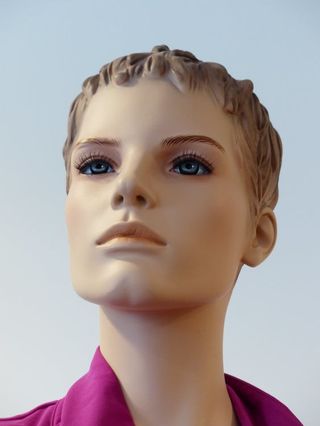
Intelligence
Biological Intelligence
How does biological intelligence differ from artificial intelligence?
Posted May 4, 2017

Biological intelligence is a new concept that’s nearly four billion years old. How does your body create and use knowledge? Biological intelligence teaches your body to teach itself. Just like you educate your brain, you can teach your body.
Lots of people have heard about artificial intelligence, or AI. But why haven’t you heard about biological intelligence, or BI? Because most of biological intelligence is quiet and unconscious. You see your hair grow. You don’t see your body learn.
Take immunity, your ability to fight infection and cancer. Your ability to fight off the flu is not something you know about—unless you get sick. Look at cancer. We probably form dozens of tiny cancers each and every day. But we destroy almost all of them so effectively we never know. Biological intelligence engages all of immunity's remarkable tasks. One of the future tasks of biological intelligence is to teach the body to correctly recognize cancers that have been missed, then make the immune system go after them. Yet biological intelligence is much more than destroying viruses and tumors. Biological intelligence is the basic stuff that keeps you going. It teaches your body to do what it needs to do.
It’s so big, so important, it's useful to compare it with artificial intelligence, the stuff transforming our lives and economy:
1. Biological intelligence engages all the conscious and unconscious knowledge of a human being. That immense field stretches from genetics to culture to society and psychology. Much of it is hardly understood. Your mother’s arm that holds you in an embrace, the lover’s hand that gently touches your cheek, and the little gestures that tell you’re loved will prove hard work for robots.
2. Biological intelligence is connected to everything inside you—every information system you use. You have an immune system, a cardiovascular system, a hormonal system, a muscular system, dozens of interconnected systems. Unlike most robots, the body doesn’t do one thing at a time. It coordinates all the different information systems at the same moment. Can you presently conceptualize the systems that will have a robot laugh, cry, sing and dance, all while gauging the audience and telling a joke? Comedians do that. The size of your body’s information systems dwarf the complexity of the entire Internet. Our medical attempts to make ourselves not ill are generally far less impressive than the actions biological intelligence engages every moment to keep us healthy.
3. Biological intelligence has different goals than artificial intelligence. What is it for? In our case, the survival of our species. Biological intelligence is built to keep humanity going. Normally that includes you, and me, and everyone we know—but not always. Having genes for sickle cell may help a population survive malaria, but can really hurt you in places without it. Diabetes genes may keep us stay alive during famines, but otherwise can really mess up your life. Biological intelligence wants the species to survive—not just us.
4. Unlike the artificial intelligence you experience in glitching software, biological intelligence has survived almost everything thrown at it. It survived the asteroids that wiped out the dinosaurs. It survived volcanoes that scorched and burnt the earth for millions of years. It survived plagues and pestilence. Most of the species on the planet are gone. Billions of species have disappeared. We’re still here. Why? Because biological intelligence built us to survive.
5. So how does biological intelligence work? Here’s the real trick: biological intelligence is built on contingency and chance. Stephen Jay Gould and others pointed that out long ago. Not only do we have genetic information systems that survived asteroids. We’re built to survive comets, earthquakes, cataclysms and catastrophes that we’ve never seen—and that may never happen. Biological intelligence provides us genes and physiology that's built to survive stresses that do not yet exist and may never exist. Chance rules the world, and we are built to survive all that chance can throw at us. Think of new illnesses, like AIDS. When AIDS first hit it was terrifying. Yet many of us had inbuilt systems to keep it off, even before one effective drug was produced.
6. Unlike artificial intelligence, biological intelligence does not operate just within us, but over a huge ecosystem. That ecosystem is you. There are at least 40 trillion bacteria in your gut. They not only digest food, but now appear to change your mood, your ability to fight off infections, how cancer drugs work. There’s at least 10 times more non-human cells in your body than human ones. Biological intelligence rules them all.
So biological intelligence is big. It does amazing things. Because we haven’t thought of the body as intelligent and perpetually learning, we don’t even know what many of those capacities are. That’s the power of a system built on chance, a system created through billion of years of failures and triumphs.
But here’s the real take home: knowing that your body is intelligent can make you more intelligent. Because what you do is what you become. Every moment of life is a teaching moment. Every moment potentially gives you chances to make your body more capable, more intelligent, smarter. Everything you do teaches your body something new.
If you want to get smart, you need education. In school we teach our brains. Now we need to teach our bodies. Biological intelligence make you resilient, more capable, more able to produce and create, more capable to avoid and fight off disease. We need to teach our bodies to teach themselves.
The robots are advancing, at work and play. Artificial intelligence is getting smarter every day. So should you.



